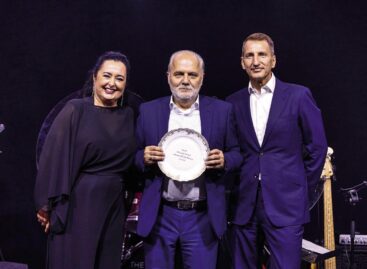The tale of two decades – György Jaksity, Concorde’s chairman of the board at the Business Days conference

György Jaksity
president
Concorde
Mr Jaksity told in his presentation that the 2008-2010 economic recession separates that the last two decades. In the 2000s economic policy was running amok, with a great budget deficit, households taking out big loans, a big and lasting current account deficit, domestic and international indebtedness, consumers borrowing money in foreign currency, a high inflation rate, procyclical fiscal policy and restrictive monetary policy. All of this lasted until the 2008 recession.
The recession taught everyone what to change if they didn’t want to go bankrupt every 10 years. In the second half of the 2010s an upturn started, backed by the influx of European Union money, when the GDP growth was rather high. At the same time Hungary’s international debt reduced considerably. The country’s economy was also helped by a strong disinflation in the world economy. Then at the end of the decade the coronavirus hit us.
We are lagging behind
It is true for both the 2000s and the 2010s that the level of economic growth was about the same. Mr Jaksity finds it shocking that with the stabilisation, European Union funding and the reaction to the recession in the 2010s, the government debt/GDP ratio was the same at the end of 2020 as at the beginning of the 10-year period. Hungary received more than EUR 50 billion from the EU, the economic environment was very good – but the government debt didn’t reduce. What is more, in the meantime the private pension funds – which made up for 10 percent of the GDP – were nationalised practically in full. Despite all of this money, Hungary was the least able to catch up with the EU’s average in terms of GDP/ person measured at purchasing power parity.
It isn’t the number of births that matters
György Jaksity’s view is that Hungary’s biggest problem is competitiveness. Something isn’t working well here, even though we have access to capital and technology just like other countries do. The explanation is simple: the GDP comes from a certain number of people doing their work with a certain level of productivity. If 90,000 babies are born a year and 130,000 people die, we can either try to increase the number of births or make 20,000-30,000 people live longer. Mr Jaksity believes the latter is a better idea. In the EU28 Hungary is ranked fifth from the bottom in the number of avoidable deaths.
We don’t have a survival strategy (either)
Concorde’s chairman of the board reckons that the biggest mistake we make is spending too little on healthcare. In 2006 the government started taking money away from healthcare and later this trend only continued. At the moment the average Hungarian has a much smaller chance to survive a serious illness than the average European. Yet, if we could save more people, Hungary would ‘find’ 150,000 more workers and about HUF 1,000 billion of GDP.
It is also very important to have a workforce that is skilled. Today one can’t stop learning after graduating from the university, as we are living in the age of lifelong learning. Compared with the EU average, we don’t spend little on education, but we spend this money badly, the institutional system isn’t good and there isn’t enough money for motivating teachers. A teacher only earns 50 percent of the average salary at the start of their career; no wonder that the number of unfilled positions doubled in the last few years.
Hungarian society is broken
This summer Broken Society Survey conducted a survey in 25 countries about how well society works. 72 percent of Hungarians agreed that the country’s social system has broken down, 81 percent opined the system is corrupt, 63 percent said the country is in decline and 40 percent expressed their view: what the country needs is ‘a strong leader who is even willing to break the rules.’ György Jaksity thinks next year’s parliamentary elections won’t change anything. He believes the current system can’t really be improved; the question is whether something will happen to shake up the society. //
The above article has also been published in Issue 2021/12-01 of Trade magazin.
Related news
We were learning together (Part 2)
Almost 1,100 “students” enrolled at the FMCG Open University, to…
Read more >Results of the autumn DUIHK survey: no rapid recovery expected
The German-Hungarian Chamber of Commerce and Industry (DUIHK) conducted a…
Read more >Péter Benő Banai: next year, the Hungarian economy may grow above 3 percent
Next year, the Hungarian economy, relying on the policy of…
Read more >Related news
Most major grocery chains will keep their stores open until noon on December 24th
Most of the large grocery chains will keep their stores…
Read more >Recognition of Consumer Protection Excellence: Honoring the Best of 2024
This year’s outstanding consumer protection officers and special award recipients…
Read more >The Joy of Giving! – SPAR stores collect non-perishable food for people in need
The Hungarian Maltese Charity Service and SPAR Hungary have launched…
Read more >








